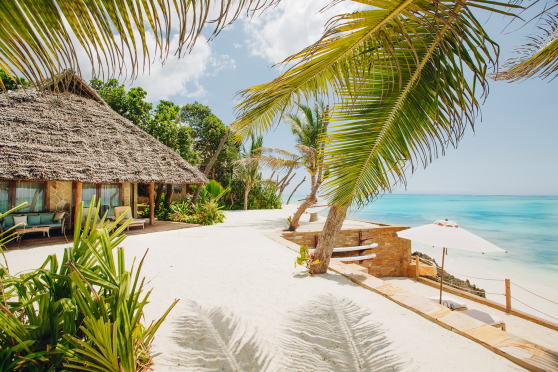Before you travel to Zanzibar
What to expect in Zanzibar
For a few days of beachside relaxation after your East Africa safari, you can’t go past Zanzibar. It’s the destination of choice for many travellers who want to sink their feet into the sand, go scuba diving and snorkelling or just soak up the rich Swahili culture of Stone Town.
Passport Requirements:
◦ All travellers require a valid passport to travel to Tanzania, which must be valid for at least 6 months from your travel date.
◦ In order to enter Tanzania, you will need to have at least two blank passport pages for each country that you plan on visiting to allow for entry and exit stamps.
◦ Some passport holders will require a visa before departing for Tanzania while others will be issued a visa on arrival. Always check with your local consulate about current visa requirements before booking your flight or making travel arrangements.
Health Vaccinations and Precautions:
◦ Make an appointment to see your doctor well before departing for Tanzania and Zanzibar. They will be able to recommend any vaccinations you might need and organise prescription medications if you require them.
◦ If you’re travelling to Tanzania from a country that’s affected by yellow fever, you will need to show proof of having a yellow fever vaccine at least 10 days prior to arrival. This is a mandatory Tanzanian government requirement and you will be required to show your Yellow Fever Card upon entry to the card. Not doing so may see you prevented from passing through immigration.
◦ Some parts of Tanzania are impacted by malaria, so talk with your doctor about anti-malaria precautions and the best option for your individual health requirements. Whether or not you decide to take anti-malarials may depend on your individual itinerary and the destinations you plan on visiting.
◦ Your doctor may also recommend a rabies vaccination in the highly unlikely case of being bitten by wildlife during your visit. While a rabies vaccine may be expensive, the disease can be fatal if left untreated.
Buy Travel Insurance:
◦ We strongly recommended that you buy a comprehensive travel insurance policy to cover you in case of unexpected situations that can arise during holidays. It’s best to opt for a policy that covers everything from travel cancellations to loss of possessions and emergency medical costs (including evacuation).
What to Pack and Bring?
◦ Casual, comfortable and quick-dry clothing
◦ Neutral-coloured clothing in beige, khaki or green (dark clothing attracts mosquitoes and tsetse flies)
◦ Long sleeve shirts to protect against the sun
◦ Cotton shorts, safari trousers and/or lightweight pants
◦ A sweater for chilly early mornings and evenings
◦ A waterproof jacket
◦ Comfortable shoes or boots with a good grip
◦ Sunscreen, sunglasses and a broad-rimmed hat
◦ Insect repellent
◦ Lip balm, moisturiser and eye drops
◦ Camera and binoculars
◦ AC/DC converter for your electronic devices
◦ Medication (including malaria, anti-allergies and pain killers)
◦ First-aid kit with bandages and antiseptic cream
The Zanzibar Climate
The Zanzibar Archipelago usually experiences a moderate climate, with warm-to-hot days throughout the year. Average highs generally range from 28ºC to 34ºC, with the dry season from July to October being the most popular time to visit. During the short rains in November and December, you can expect daily downpours followed by clear skies. The heaviest rainfalls are during April and May.
June to October – Dry season
November and December – Short rains
January to March - Dry season
April and May – Long rains
Currency:
The official currency in Tanzania is the Tanzanian Shilling (TZS), with 1 USD equal to around 2,000 TZS at the time of writing. You’ll find banks and foreign exchange counters at all of Tanzania’s international airports, as well as in most major towns and cities. U.S. dollars are generally accepted at most lodges but it’s recommended that you carry small denominations or some Tanzanian Shillings for purchasing snacks or handicrafts on cultural visits.
Banks operate Monday to Friday (8:30 am to 12:30 pm) and Saturdays until 1:00 pm. Most of the major credit cards are accepted at camps and lodges but will incur a surcharge of between 3 and 5% of your purchase price.

 1-321-766-6821 |
1-321-766-6821 | 





